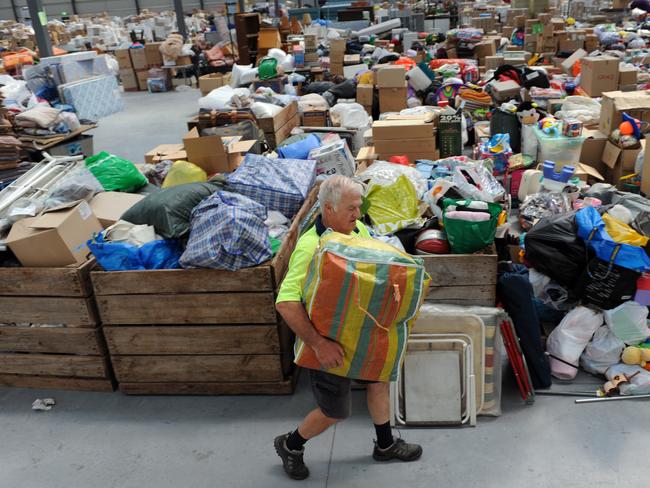Australia’s identity has changed after the bushfire crisis, as the nation unites like we did in war
Historians say the bushfire crisis has redefined what it means to be Australian, changing our identity in a way we will all never forget.
National
Don't miss out on the headlines from National. Followed categories will be added to My News.
Exclusive: The fires that scorched our beach and bush communities have redefined what summer means for Australians and united our country in a way not seen since World War II, historians say.
The hot, dry wind that blows across Australia every December once signalled long beach days and skin sticky with sunscreen; a time of celebration and relaxation. Now demographers and historians say the fires have shaken our perceptions of our cultural identity and changed the way we see summer – scarring our identity as well as our landscape.
Like grief, disaster recovery can be messy and never-ending but experts warn locals must play a key role for communities to authentically rebuild.
Demographer Bernard Salt said the fires generated a response in Australia not unlike the effect of past World Wars.
“It triggered a unique response in Australia, it bound the nation together like few other events and triggered a community focus, we are a small nation and a vast continent and there are very few events that draw us together – certainly War was one,” he said.
Mr Salt said the difference with this generation was the real time unfurling of information through every day Australians, connecting us further as a nation.

“In World War II though the information was managed but now we are seeing a major event on a vast scale and it is being fed in real time by citizen journalists who will upload something on their iPhone and it can be rumour and fear but also genuinely heartwarming moments involving community or wildlife and that is incredibly bonding as a nation,” he said.
“It is raw and unfiltered and fearsome. That video of the CFA truck driving through the flames was gut-wrenchingly scary.”
Professor Mark McKenna, from the University of Sydney, is a historian and a NSW south coast local. The fires came with two kilometres of his family home before the wind changed and he said the experience was life-changing – and not just for him.
“For Australians, the beach and the summer lifestyle is tied up with our identity but we are starting now to fear summer because of the fires and that is something that changes us. When you live with the idea that everything you own could be wiped out by bushfires – it is a different way of living,” he said.
“These fires are going to force us to change in a way that others in the past haven’t because they are on a national scale.

MORE NEWS
Aussie tourism operator plea for world to ‘come back’
Tim Costello: Bushfire crisis reveals our true selves
Red Cross could take up to $11m in fees to help fire victims
Celeste Barber’s funds start flowing to firies
“It has challenged our traditional view about beautiful, sunny Australia and forced us to see the environment as not just a threat but an existential threat to our way of life.”
As there are green shoots in the ground so too can we see this in our communities, with the fires bringing together city and country in an unprecedented way – but for our towns to rebuild in both bricks and mortar and spirit, experts warn the effort must be lead by locals.
Director of USQ’s Rural Economies Centre for Excellence Associate Professor Ben Lyons said the bush has long been a part of the Australian psyche but we have drifted away from the regions as more people move to cities.
“Regions are such a big part of the Australian identity but we are very urban centric, only 34 per cent of people live outside capital cities,” he said.
“The fires have really brought us together and shown how functional we are.”

He said many of the small towns will have to rely on outside help because there is simply not the local capability – but that for it to work it had to be lead locally.
“This will be a real test of local leadership and taking the community with them. There is real power in the community that is organised in the right way,” he said.
“The locals need to understand what they want and what they can do.”
South Australian Kimberly Smart was evacuated five times since Christmas before losing her home when the fires swept through Kangaroo Island. When the fires came she and her husband grabbed the kids and left – a decision that saved their lives as less than 10 minutes later the fire destroyed their family home.

She has managed to hold onto her job at the local Wild Life Park and said Red Cross grants meant they could get on their feet with quick cash in hand and push on with the long recovery process.
“It’s important that the local community are involved in working together as one in the recovery and support processes.”
Originally published as Australia’s identity has changed after the bushfire crisis, as the nation unites like we did in war


